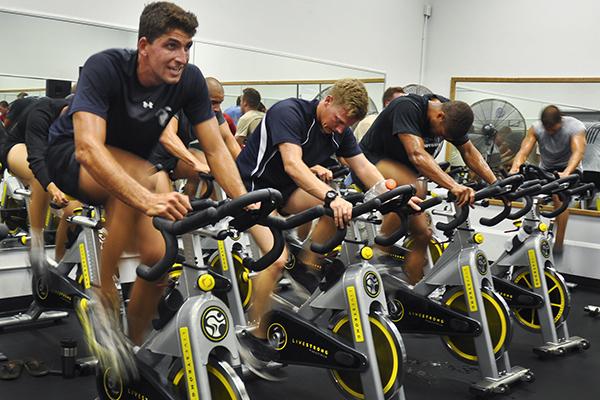This is an example of how a kernel of insight from a study evolves into a news item, which can then become a health concept that people can unwittingly incorporate into their personal exercise routines – for no good reason.
In late August, the Hartford Courant ran an article about breakfast and morning workouts, with the headline "Eating before early workout helps burn carbs." It's a pretty definitive statement that delivers a clear impression that a legitimate finding was made, one that could actually alter how day-beginning workouts are approached.
It got my attention, so I took a closer look at the study. And I'm glad I did because that's when problems surfaced.
The study attempted to uncover something straightforward: whether eating breakfast or fasting before exercise is best for burning carbohydrates. And for everyday folks looking to maximize their results from their workout, it's a common, worthwhile question.
But it doesn't take long to learn that the small British study included just 12 men. Or according to a release from the University of Bath, where the study took place, a dozen "healthy male volunteers" participated who were "physically active."
That's a tiny group, which included no women, and all of whom were "healthy." And as far as the study's results relating to the general population, not a terribly large or diverse sample size to put it mildly.
Specifically, researchers "were studying the effect of eating breakfast versus fasting overnight before an hour’s cycling. In a control test breakfast was followed by three hours’ rest," according to the university. "The volunteers ate a breakfast of porridge made with milk two hours before exercise." After testing glycogen and blood glucose levels of the men scientists found that the burn rate for carbs was better for those who ate breakfast.
One of the study's co-leaders stated that "this carbohydrate wasn't just coming from the breakfast that was just eaten, but also from carbohydrate stored in our muscles as glycogen," according to Rob Edinburgh, a Ph.D. student. "This increase in the use of muscle glycogen may explain why there was more rapid clearance of blood sugar after ‘lunch’ when breakfast had been consumed before exercise."
Now, while the study's sample size was minuscule at least the university didn't wildly overstate its findings, like the Courant did with its definitive headline mentioned above. Instead, in publicizing the study, it smartly hedged, stating "New research suggests eating breakfast could 'prime' the body to burn carbohydrates during exercise and more rapidly metabolise foods after working out" (emphasis using italics added).
Another limitation of the study is that researchers let the participants tell them that they were physically active. The authors wrote in their paper that all 12 men "self-reported as regular exercisers engaging in at least 30 min of exercise a minimum of 3 times per week." Self-reporting should be avoided whenever possible (and certainly in this instance, where other red flags exist).
In their defense, these researchers did acknowledge several issues with the work, including that long-term implications are "unclear" and "a clear need for more research looking at the effect of what we eat before exercise on health outcomes." That said, all in all, one can see that there's quite a difference between what the study found and what the public was told what was found.




